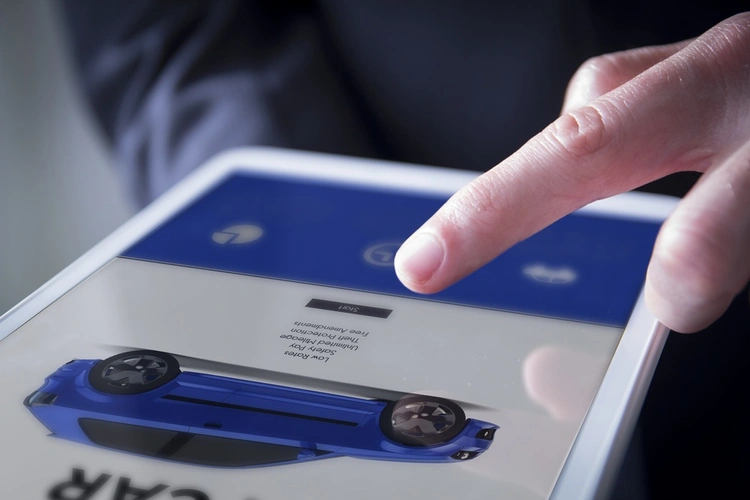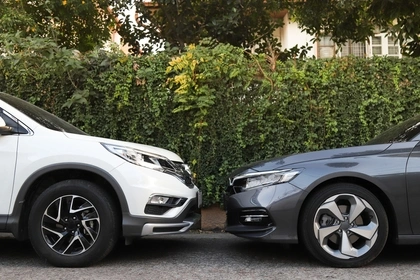When do you need to update your information with your insurance provider?
Name change
If you change your name by deed poll, you’ll need to tell the DVLA so they can update your licence. You should also notify your insurer so that all your details match up between the two companies.
It’s free to get a new licence, and you can continue to drive your car in the meantime. Simply post the following documents to the DVLA:
- Deed poll paperwork
- Old driving licence
- D1 application form (from the Post Office)
Failure to do so could lead to a £100 fine.
Marital status
Follow the same process to change your marital status. The only difference is, the DLVA will want a copy of your marriage certificate instead of deed poll documents.
Gender
You should tell the DVLA if you change gender. They’ll need your old driving licence, a D1 form, plus supporting documents to update your records. Also, ask your insurer to update their records to match.
Changes to your personal details like name, marital status and gender shouldn’t impact your premium.
Additional driver
Before you can let someone else drive your vehicle, you must speak to your insurance company to add them as a named driver. Otherwise, they won’t be covered by your policy. Your insurer will ask for details such as their name, age, job title and driving record.
Change of address
You must also update your insurer and the DVLA if you change address. This could affect your insurance premiums, depending on the risk associated with the new area.
For example, if there’s a higher level of crime in that area, your premiums could go up to reflect this. If you don’t keep your insurance company in the loop, then you won’t be covered if someone breaks into your car.
Keeping your insurer up-to-date also ensures that you receive their letters, including any renewal quotes etc.
To update the DVLA, just add your new address to your vehicle log book (V5C) either - online or in the post. This is usually free of charge. Failure to do so could lead to a £1,000 fine.
Different location overnight
Perhaps you haven’t moved house, but your car is being kept in a different location overnight (e.g. on the street instead of in the garage). If this is the case, you’d still need to tell your insurer.
Drive your car abroad
Car insurance issued in the UK will include a minimum third party cover in EU countries. (This may change on 1st January 2021). But you should still tell your insurer before you go. Remember to check if any extras like theft or damage are included in your policy.
Moving abroad
You must inform your insurer and the DVLA if you or a named driver are moving abroad for 12 months or more, and are taking the car away.
Before you go, complete the ‘permanent export’ section of your log book (V5C) and return it to the DVLA. If you haven’t got a log book, you can request a new one for £25. This can be done over the phone or by post.
You can also request a refund of vehicle tax, if applicable.
Change of occupation
As the main driver or a named driver on an insurance policy, you’re responsible for letting your insurer know about any changes to your job role. (There’s no need to notify the DVLA).
For example, a new job might mean spending more time on the road. The higher your mileage, the higher the risk of being involved in an accident. So your insurer may increase your premiums to balance out the risk from their point of view.
Not updating your insurer could invalidate your insurance and you could face a charge.
Change of use
If your car is being used for a new purpose (e.g. to commute to work), then your insurer will need to know. This change will probably affect your premiums, and you want to make sure you’re insured at all times.
Car upgrades or modifications
You must notify your insurance company if any changes are made to your car that affect its value and performance. For example, adding a spoiler, alloy wheels, a new engine or getting your car resprayed. Insurers need to take these changes into account when calculating your premiums, to make sure you are fully covered.
Change registration plates
If you get new car registration plates, tell the DVLA and your insurer to avoid being pulled over by the police for having no car insurance. This could lead to penalty points or your car being taken away and destroyed.
You can assign a car registration number with the DVLA either online or in the post, for free.
Incidents
If you or a named driver are unfortunate enough to be involved in a traffic incident, you must tell your insurer straight away - whether you’re making a claim or not.
They need to know if your car has been damaged and if this has affected its value. You might think the damage is minimal at first, only to be landed with an unexpectedly large repair bill, leading to a change of heart. Even if you don’t make a claim, the other party might, so your insurer needs to know both sides of the story.
Every insurance company follows their own guidelines, but some will keep your premiums the same if no claim is made by either party.
Driving offences
Also, let your insurer know if you or any named drivers have your driving licence suspended or revoked. You must also declare fixed penalty notices, driving convictions, penalty points, as well as driver awareness courses. If you don’t disclose this information, your insurance will be invalid. (They don’t need to know about parking fines).
To view and share your driving licence information, please visit the Government’s website.
How do I transfer my insurance to a new car?
If you get a new car, you don’t need to cancel your existing insurance. You can transfer your current policy to your new car. To do this, just get in touch with your insurance company and ask them to make the necessary changes.
Bear in mind your premiums may go up or down as a result. And you may be charged an admin fee, depending on the terms and conditions. Make sure you are covered from day one, as it’s illegal to have a car without valid insurance (unless it’s declared off the road with a SORN).
How do I switch my car insurance provider?
If you wish to switch car insurers, inform your current provider and tell them the day you want the contract to end. Check if you’re due a refund of premiums and how they’ll calculate it.
Tip: Make sure that the new provider will accept you first, to avoid any breaks in your cover.
Be aware that you may face admin and cancellation fees for switching before your current deal ends. It’s best to check the terms and conditions of your contract for details. You may not need to pay if you’re within your 14-day cooling-off period. This depends on the insurer and the terms and conditions of your agreement.
Switching part-way through can jeopardise your no claims bonus for that portion of time. So you may prefer to wait until the full claim-free year ends before switching. Then you can use your no-claims bonus to try and get a better deal next time.
Compare cheap car insurance quotes
- Search over 100 providers
- Quick and easy comparison tool
Disclaimer: We make every effort to ensure content is correct when published. Information on this website doesn't constitute financial advice, and we aren't responsible for the content of any external sites.






